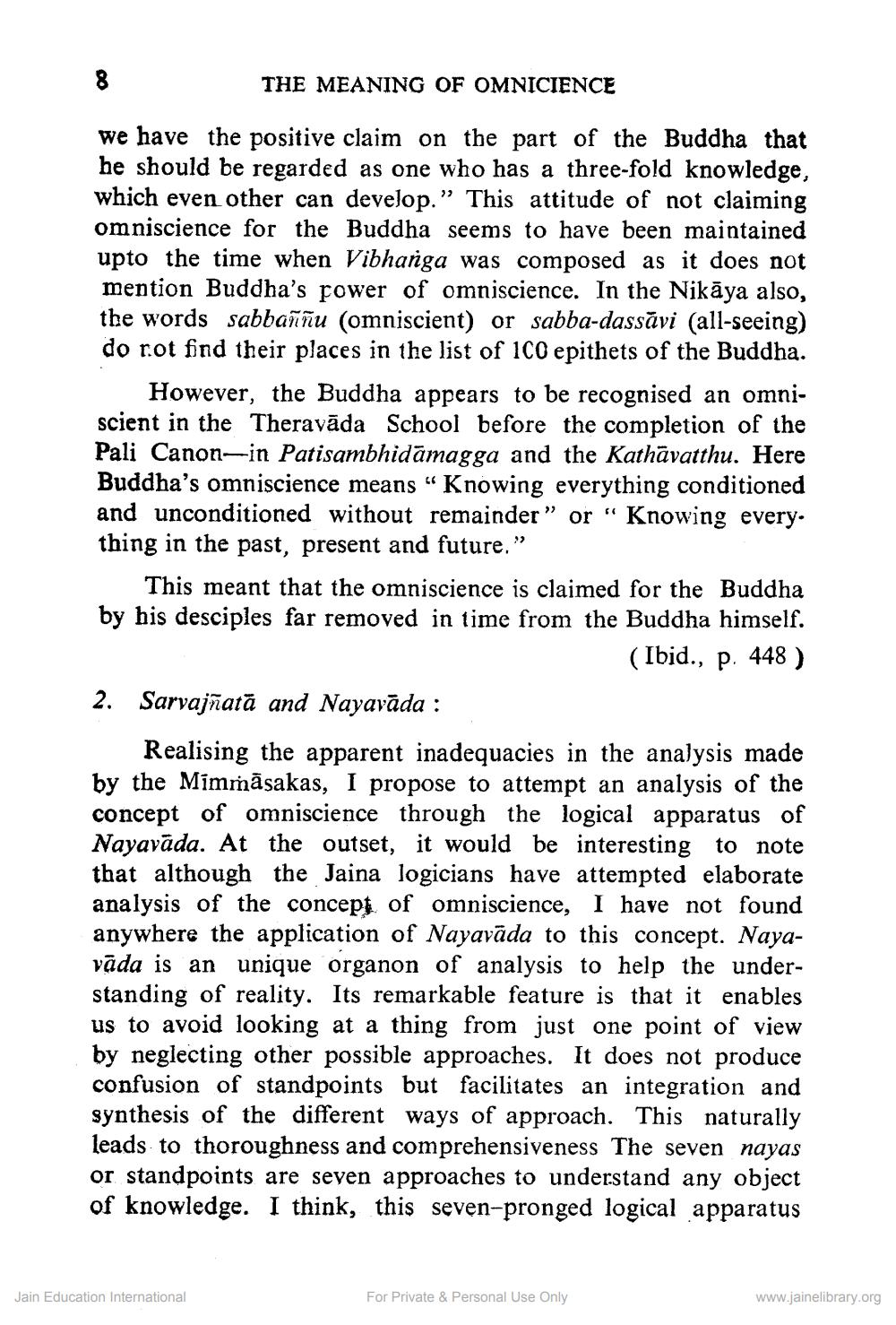________________
8
THE MEANING OF OMNICIENCE
we have the positive claim on the part of the Buddha that he should be regarded as one who has a three-fold knowledge, which even other can develop." This attitude of not claiming omniscience for the Buddha seems to have been maintained upto the time when Vibhanga was composed as it does not mention Buddha's power of omniscience. In the Nikaya also, the words sabbaññu (omniscient) or sabba-dassăvi (all-seeing) do not find their places in the list of 100 epithets of the Buddha.
However, the Buddha appears to be recognised an omniscient in the Theravada School before the completion of the Pali Canon-in Patisambhidāmagga and the Kathavatthu. Here Buddha's omniscience means "Knowing everything conditioned and unconditioned without remainder" "" or Knowing everything in the past, present and future."
This meant that the omniscience is claimed for the Buddha by his desciples far removed in time from the Buddha himself. (Ibid., p. 448)
2. Sarvajñata and Nayavāda:
Realising the apparent inadequacies in the analysis made by the Mimmāsakas, I propose to attempt an analysis of the concept of omniscience through the logical apparatus of Nayavada. At the outset, it would be interesting to note that although the Jaina logicians have attempted elaborate analysis of the concept of omniscience, I have not found anywhere the application of Nayavada to this concept. Nayavada is an unique organon of analysis to help the understanding of reality. Its remarkable feature is that it enables us to avoid looking at a thing from just one point of view by neglecting other possible approaches. It does not produce confusion of standpoints but facilitates an integration and synthesis of the different ways of approach. This naturally leads to thoroughness and comprehensiveness The seven nayas or standpoints are seven approaches to understand any object of knowledge. I think, this seven-pronged logical apparatus
Jain Education International
For Private & Personal Use Only
www.jainelibrary.org




